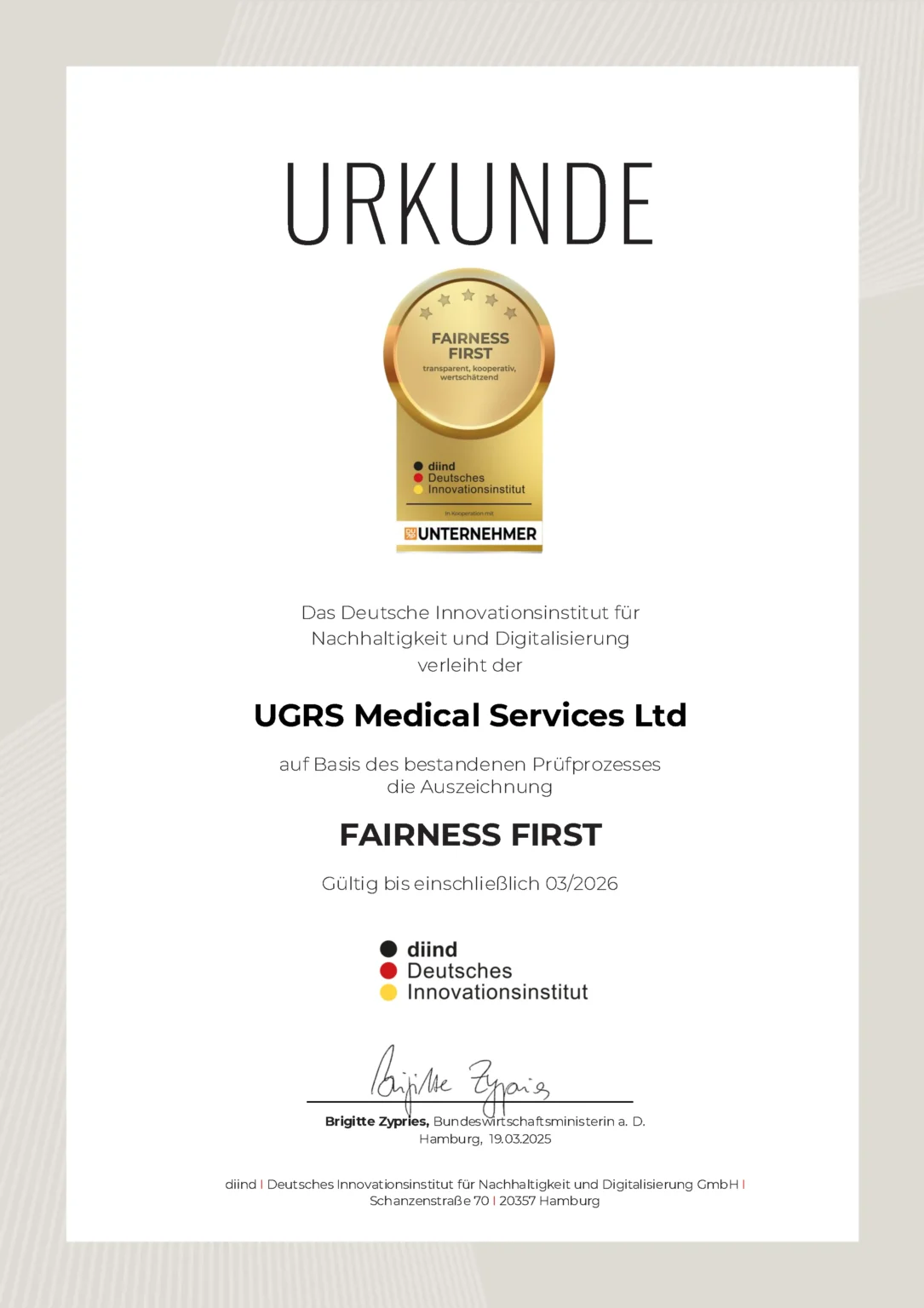Home » UGRS.Knowledge – Glossary on Penis Enlargement, Anatomy & Urology » Hormone disorders
Hormone disorders
Disorders of the sex hormones in men can have various causes and manifest themselves in different ways. Here is an overview of the most common hormonal disorders:
1. hypogonadism
-
Primary hypogonadism
This condition occurs when the testicles themselves cannot produce enough testosterone. It can be caused by genetic disorders such as Klinefelter syndrome, testicular injuries or infections (e.g. mumps). -
Secondary hypogonadism
This is a disorder in the pituitary gland or hypothalamus that results in the testicles not being sufficiently stimulated to produce testosterone. Causes can be tumors, head trauma or certain medications.
2. andropause (age hypogonadism)
- Andropause refers to the natural decline in testosterone levels with age. This can lead to symptoms such as tiredness, depressive moods, loss of libido and muscle loss.
3. erectile dysfunction (ED)
- Although ED is often caused by vascular, neurological or psychological factors, low testosterone levels can also play a role. Hormonal disorders such as hypogonadism can exacerbate ED.
4. gynecomastia
- Gynecomastia is the growth of breast tissue in men, which can be caused by an imbalance between testosterone and oestrogen. It can occur in adolescents during puberty, but can also be caused by hormonal disorders such as hypogonadism or medication that affects hormone levels.
5. Klinefelter syndrome
- This is a genetic disorder in which men have an extra X chromosome (XXY instead of XY). This results in low testosterone levels and can lead to infertility, reduced muscle mass and increased breast development.
6. adrenogenital syndrome (AGS)
- A rare genetic disorder that leads to an overproduction of androgens by the adrenal glands. In men, this can lead to premature puberty, but in children it can also lead to abnormal genital development.
7. prolactinoma
- A benign tumor of the pituitary gland that increases the production of the hormone prolactin. This can inhibit testosterone production and lead to symptoms such as loss of libido, infertility and gynecomastia.
8. anabolic steroid abuse
- The abuse of anabolic steroids to increase muscle mass can suppress natural testosterone production and lead to a hormone imbalance. Long-term consequences can include infertility, gynecomastia and atrophy of the testicles.
9 Kallmann syndrome
- A rare genetic disorder that affects both the sense of smell and hormone production. Men with Kallmann syndrome often have low testosterone levels and may suffer from incomplete puberty and infertility.
10. hormone resistance syndromes
- Conditions in which the target organs do not respond to androgens even though normal or elevated levels of these hormones are present. This can lead to atypical sexual development or other hormonal problems.
These disorders can be detected by blood tests to measure hormone levels and other diagnostic procedures. Early diagnosis and treatment are important to alleviate symptoms and improve quality of life.
If you have any questions, please do not hesitate to contact our staff.
This content is for general information purposes only and does not constitute medical advice, diagnosis or treatment recommendations. It is in no way a substitute for a professional examination or treatment by a licensed physician. If you have any health complaints or uncertainties, please always consult a medical professional – especially if you have any questions about intimate surgery or sexual health.








